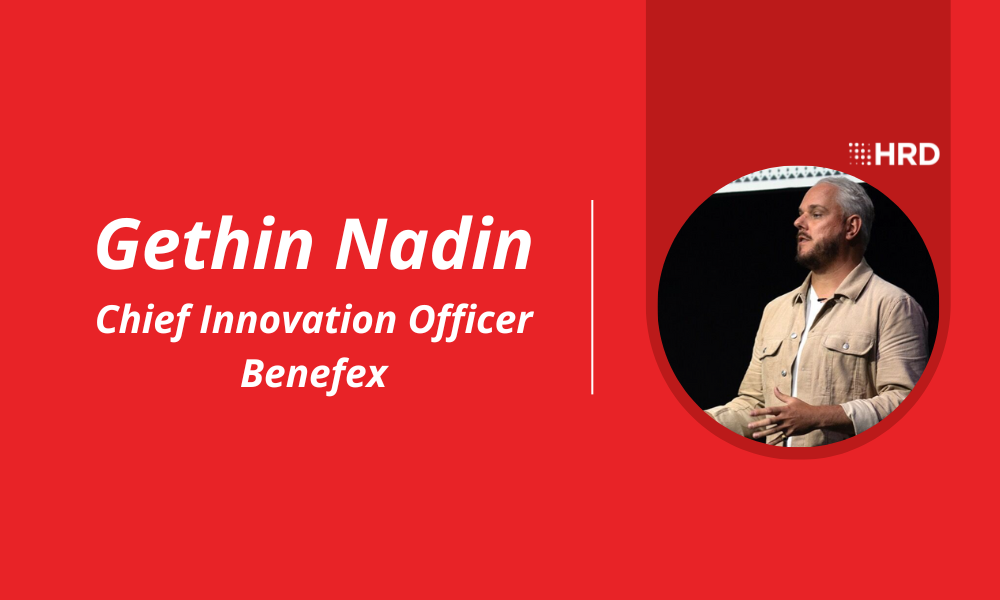The power of perks: Creating benefits that power retention and performance
- 5 Min Read
An organization’s EVP has never been so important to help attract, engage, and retain the best people.
- Author: Gethin Nadin
- Date published: Mar 14, 2023
- Categories


The need for more employee incentives
The UK is currently faced with the challenge of making work more attractive to employees, as employee engagement drops, potentially brought on by stressful working conditions. 60% of UK workers say they wouldn’t work at all if money was no object – which is much higher than the international average (47%). And financial pressure is adding to employee stress; unaffordable childcare and high commuting costs are causing employees to reduce their working hours or got part-time because working more becomes less financially viable.
Meanwhile, employee expectations of their organizations are rising. Employees are looking for organizations that offer them more holistic support across benefits, recognition and wellbeing. In our research, surveying more than 4,000 employees across the globe, 90% of employees said that benefits provision was important when choosing an employer – and 92% want to see a commitment to employee wellbeing. A supportive organizational culture, flexible working, values, and employee recognition programs are also high on the employee agenda.
3 reasons employers need to take action
-
Recruitment and retention
Over the last few years, there’s been a power shift between employers and employees, with recruitment and retention challenges impacting organizations globally. And although resignation rates have started to decline, analysis by the World Bank highlights that there will continue to be a persistent gap between employer demand for new hires and the supply of candidates for some years, especially in in-demand sectors like technology or healthcare (in part due to skills shortages and an aging population).
Talent shortages means that the employee expectations that grew during the pandemic – for more flexibility, higher pay, better benefits, and support for their wellbeing – will continue to be a driver behind workforce mobility. Our research showed that 83% of employees who are not well supported are considering moving jobs, and they’ll be looking for organizations that are doing more to show they care about their employees.
-
The business case for wellbeing
Wellbeing is becoming an increasingly significant part of the employee experience, and it cuts across company policy, employee benefits and workplace technology. As well as simply being the right thing to do, investing in wellbeing support reaps significant rewards for employers; it’s estimated that there’s a return of £5 for every £1 invested in supporting employee mental health.
Failing to support employees can be costly. The UK National average cost of poor mental health at work is £1,652 per employee per year, due to absenteeism (time lost to sickness) and presenteeism (employees come to work when they are unwell and are less productive). The estimated cost to employers of mental health-related presenteeism is roughly three and a half times the cost of mental health-related absence.
And it’s not just the business’ bottom line that can benefit from greater wellbeing support – there’s a knock-on impact on employee’s physical health and happiness. For every £694 annual increase in people’s wellness expenditures, happiness levels rise by 7% and life expectancy goes up by 1.26 years, according to a study released by the Global Wellness Institute.
-
Fostering high-performing teams
Recognition is fundamental to both culture and employee performance – acting as both a reward and a motivator. In fact, 83% of employees say a recognition program is an important consideration when choosing an employer and 89% of employees said people should be recognized for embodying the company values.
This need for recognition to reinforce company values is heightened in a remote or hybrid working environment, as many of the things that make up an organization’s culture are shifting to the digital realm. Peer-to-peer recognition helps employees feel valued within a team, wherever they are in the world – as they see that other colleagues appreciate their efforts and contributions.
In-the-moment recognition builds more of the behaviors you want in your organization, improves employee confidence, and strengthens bonds between colleagues. A digital recognition platform helps bring the organizational culture to life, as colleagues celebrate milestones, and improve communication and collaboration – both within their teams and across the business. This collaboration and sense of belonging will also lead to greater innovation, creativity, and productivity.
Providing an exceptional employee experience
An organization’s EVP has never been so important to help attract, engage, and retain the best people. But to meet employees’ growing expectations, and deliver an outstanding employee experience – every day – it’s important to understand what employees want…
Our research shows that employees are looking for a great benefits package, with 91% saying it will make them feel more valued at work and 89% saying the right package would encourage them to stay with their existing employer. The top four ways that they feel their employee benefit provision could be improved include more choice and flexibility in benefits, increased focus on employee wellbeing, benefits that make them feel protected, and benefits that are more relevant and personalized to them as an individual.
Benefits, recognition and wellbeing support should all be underpinned by a “consumer-grade” technology experience that makes it easy for your employees to see everything you do for them, all in one place. Indeed, of employees want one place for all the benefits, content, and resources that they get from their employer.
Bringing together benefits, recognition and wellbeing support in a single hub can help foster a greater sense of organizational belonging and make your organization more attractive to new and existing employees.
____
Gethin Nadin, Chief Innovation Officer, Benefex. Gethin is an award-winning psychologist who has been helping some of the world’s largest organizations to improve their employee experience and wellbeing for two decades. The last 10 years have been spent working as part of the senior leadership team here at Benefex where Gethin leads our thought leadership in the market. His latest book A Work In Progress: Unlocking Wellbeing to Create More Sustainable and Resilient Organisations is available now!









